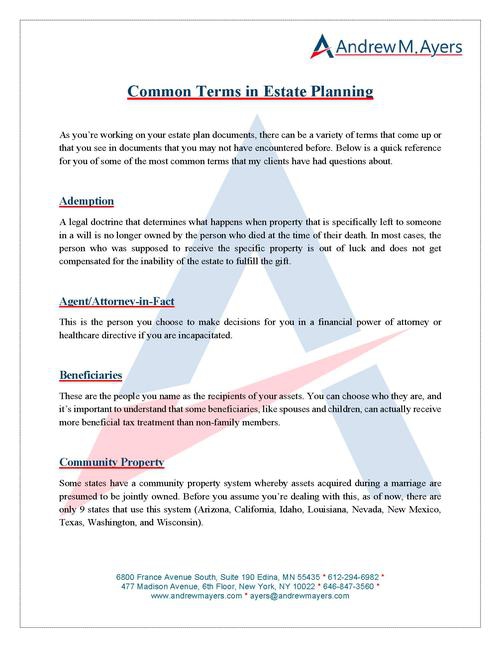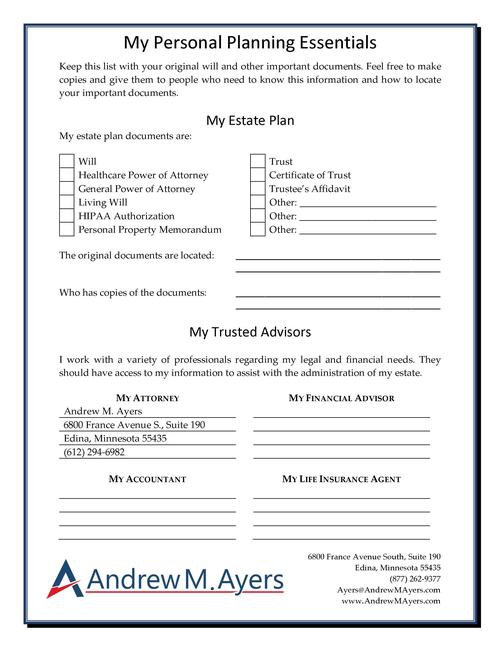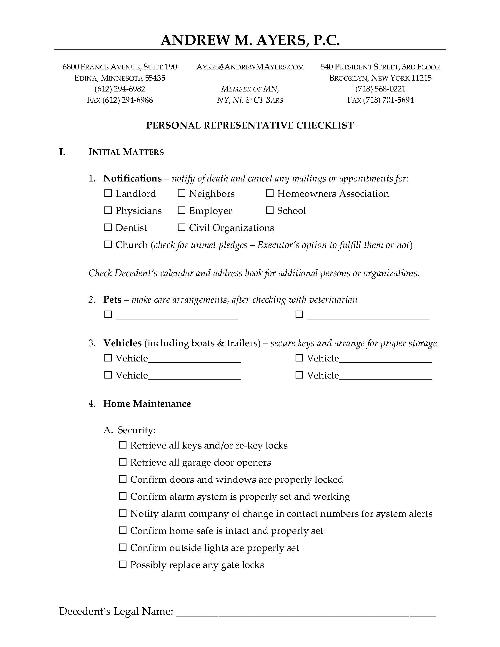When it comes to your estate plan with a trust, if you need to make changes to the trust, there's going to be two main ways we can do it:
- Trust Amendment
- Trust Restatement
Trust Amendments
Now, if you've drafted your trust a year or two ago, chances are you're not in the market to make any changes anytime soon. Now, every now and then some little things have changed here and there but usually, when I see people come to my office for a change to the trust, it's been a few years and they've moved to a new state. They've had more children. They need to replace some people who are acting as backup trustees, or successor trustees under their trust. But if you just signed your trust in the last year or so chances are you're not looking to make any changes yet but if you are looking to make changes, they're going to be the two ways we can do it. The first way is going to be a trust amendment. So the trust amendment is going to be a separate legal document. It's gonna be about two or three pages long. It can be longer depending on how many changes we're making. The idea is that we're making a change to a specific part. Of your trust. We're not changing the entire trust, maybe we're changing a trustee and successor trustee, maybe we're adding a child maybe we have different beneficiaries. Now, if we have a special needs trust, and unfortunately something happened to that child, maybe we're going to take that provision out of our trust. So if we're only changing a portion of our trust, and we're looking at what's called a trust amendment, you can also run into a trust amendment if somebody gets married or divorced for that matter. So if they're changing their name, you can still identify them in the trust. But just to be clear, and make sure that there's no doubt you may want to do a trust amendment to update their name as well.
And also, let's say you've acquired some new property. Maybe you've got a new car, it's a collectible and you want to make sure it's going to the right member of your family after you're gone. We can make that update or we have specific property we want to donate. Or let's say you're giving money to a charity or giving money to an educational institution. And before you weren't aware you were going to do it, but now we're going to add it in. These are all things that trust amendments so we can work through them and just amend that portion of the trust that has the specific change you want to make. It's a much easier process on our second way to do it. But it's the one that most people are commonly looking for when they think it's time to change my trust. So a lot of times I will meet with clients who have moved from another state, or it's been a few years and they think I've got to get all in this again and make an entirely new trust and I remember how long it took last time and how expensive it was. And so they put off making changes because they're worried about it being too long, too intensive, too expensive. The fact is a trust amendment may be all that they need.
Trust Restatements
This is going to be for making significant changes to the trust. And if we want to make a lot of changes, then it's usually better to do a restatement. So if you've moved, if you worked with a prior attorney, and now you're gonna go to a different attorney, a lot of times their recommendation is going to be you should do a restatement of that trust because they want to make sure that they've got all the right language that they use in their trust. And that's the difference between working with an attorney and just working with some online website. That's going to give you the same form to person after person. When you're working with an attorney. What we do is tailor these trusts to you and your family. We don't just give you a generalized form and plug your name in.
So my trust is going to look different than the trust of somebody down the hall on my building and look completely different than somebody to downs over. It kind of has similar provisions. But each attorney usually has their own version of the trust and if you're coming to them to redo work that a prior attorney had done, chances are you're going to be looking at a restatement of your trust. If you're going to be removing a beneficiary from your trust, if you're gonna add a new spouse, and you're gonna change and add on different new distributions like to a charity or an educational institution. Oftentimes, we will recommend a restatement because these are bigger changes that we want to make sure we have incorporated in the correct way into your trust. And again if that trust was drafted by another attorney, chances are the new attorney you go to is going to want to do a restatement because they want to make sure that we've got the right trust for you and your family.
Next Steps
So as you can see, there are two methods to amending your trust. The shorter one is a trust amendment. The longer more intensive one is a trust restatement. Either way, there are two ways you can do it. The first is to try to do this yourself. But as I said, if you're gonna go to some website, they're giving everybody the same trust form. It might not be the right trust on your back to map languages that you don't require. And it may end up hurting your purposes for what you're trying to do with your family. That's why the second way to do it, is the smarter way to do it, and probably the way you're going to do it if you're researching how to change your trust online. Work with a professional. So first things first, talk to your financial advisor. Make sure we understand what your assets are that are going into the trust and what's not the trust. Because a lot of times you'll find that what you think is going to go into the trust is actually not planned for that way with your financial advisor. So as part of this trust change, we want to make sure we're getting everything in the place it should be. And after you've spoken to your financial advisor, speak to your attorney, whether it's the attorney who drafted the trust or finding someone new to review that trust, and make sure it says what you'd like it to say working with an attorney can make sure you get the right trust document for you as you move forward to make these changes.
If you aren't sure where to go next or you want to get started with my office, you can set up a Legal Strategy Session, a 15 or 20-minute phone call to discuss where you are in the process and whether or not you need changes to your trust. And if so whether we're looking at a trust amendment or a trust restatement. Don't be intimidated by the process. Even if the first time you worked on your trust. It was really intensive and expensive and that took you a ton of time. If you need to make changes. Don't let that prior experience stop you from making the amendment or restatement to your trust.










